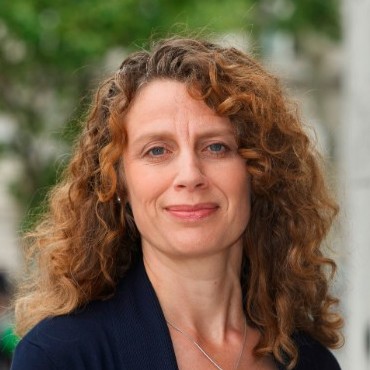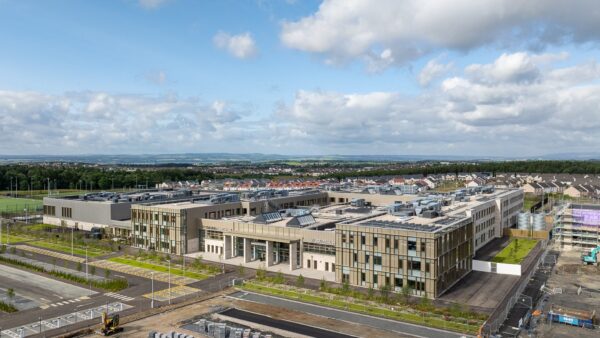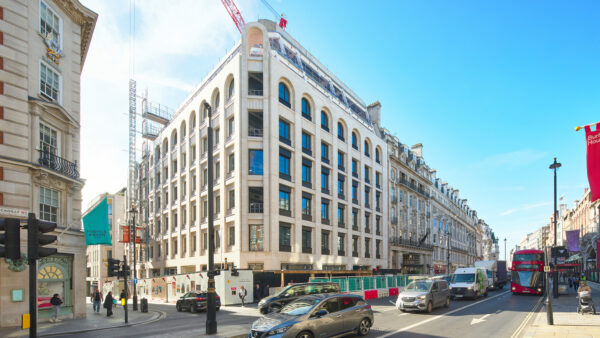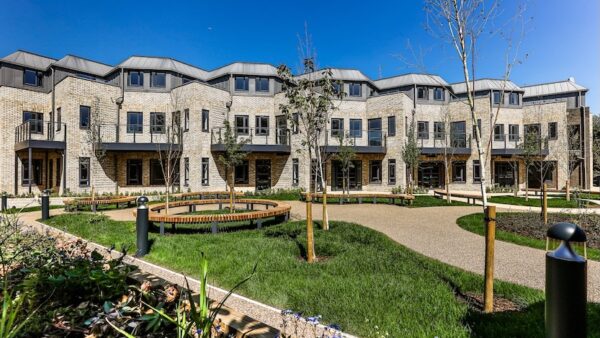
Emma Foster MCIOB from developer BGO talks to Kristina Smith about sourcing sustainable supply chain partners – and avoiding the greenwash.
Headquartered in Miami in the US, developer BGO (BentallGreenOak) has been building up a portfolio of central London offices for its Welput fund since 2001. In addition to 105 Victoria Street, an ambitious new-build scheme due for completion in 2026, BGO’s recent projects include The Waterman, a refurbishment and extension of four Victorian warehouses in Farringdon, and the redevelopment of Regent’s Wharf in Islington.
London planning conditions put low carbon emissions and high social value on every developer’s agenda. But these aspects are important to prospective tenants too, says Emma Foster MCIOB, principal at BGO.
“The competition for tenants is fairly high,” she says. “Globally, everyone is interested in environmental and social issues, and everyone is looking to improve. We are trying to meet that demand with what we are doing, but the ambition for us as a firm is to deliver sustainable,
long-service-life buildings.”
Any carbon-conscious client contemplating a new scheme should start with the mantra of ‘reduce, reuse, recycle’, says Foster. And the goal of reducing operational carbon should be pursued from day one – for instance by going 100% electric on 105 Victoria Street.
For that project, BGO set up a sustainability steering group, made up of people from key consultants and from Skanska. “We wanted to make sure the focus of the decision-making was led by sustainability, circular economy and water conservation issues, things that would operationally impact on the building rather than being led by cost or what looks good,” says Foster. “It helped to keep the focus.”
Technical tender first
BGO favours a two-stage tender process for main supply chain members, where the first stage is purely technical, with no costs. “The reason we do it is because it puts the focus back on how the job is delivered, rather than on the price,” says Foster. “We want to know how these contractors can deliver our sustainability and social goals in their field of work. When you remove the commercial aspect, they really have to think about how they come across, and what innovations they can deliver.”
This approach encourages bidders to propose new ways of working, she says. “We are never averse to someone saying: ‘We can do this, but it might cost more money’. We would then do a value versus gain analysis and sometimes it isn’t worth it, but a lot of the time the investment pays off.”
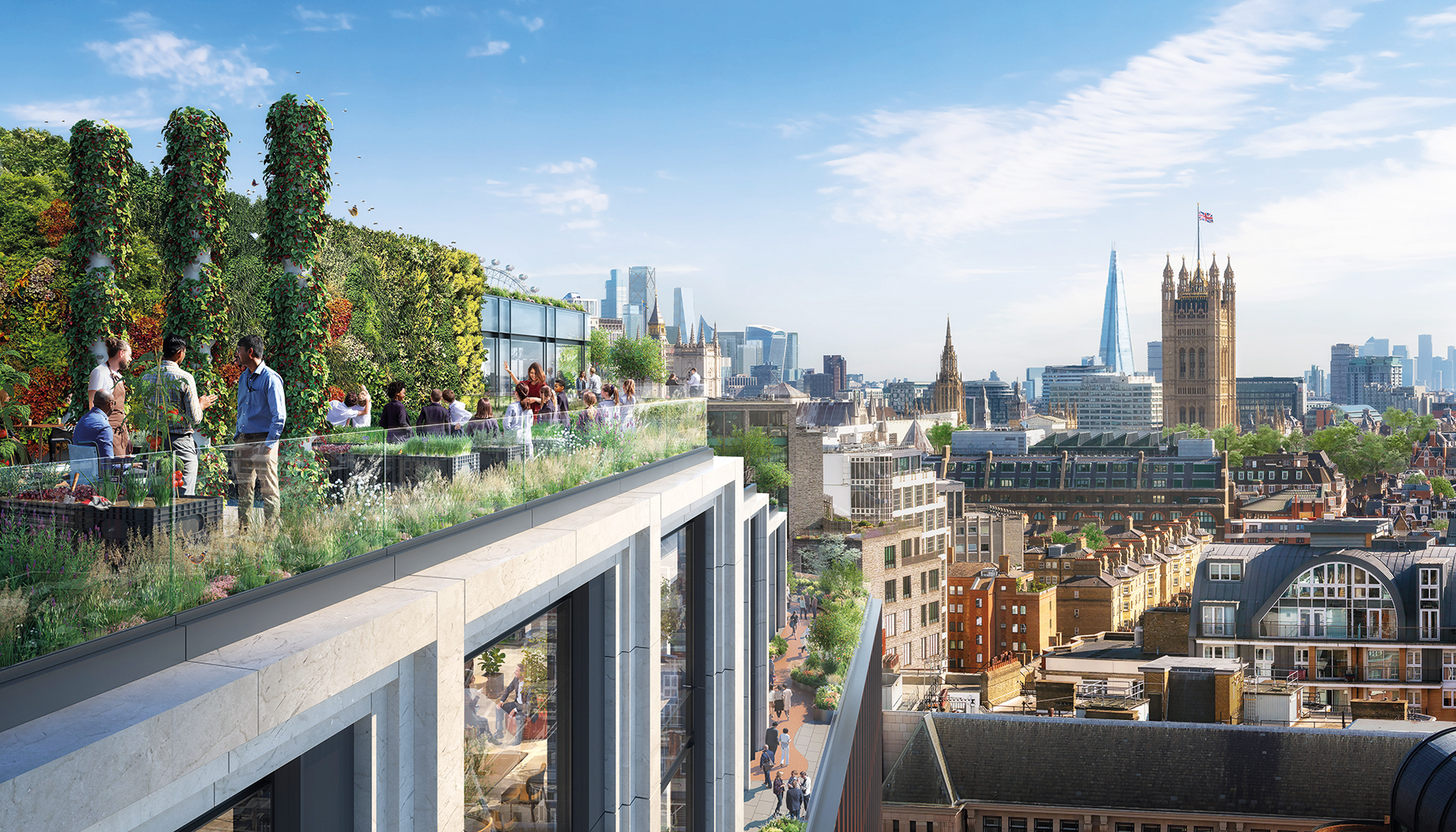
For instance, lift supplier Schindler will be deploying its Robotic Installation System for Elevators (RISE) to install components in lift shafts for the very first time on 105 Victoria Street. This will halve installation times and reduce safety risks, says Foster. “That idea came through the procurement process,” she adds. “We discussed it with them before we chose them.”
From a social value perspective, BGO is looking for supply chain partners who can help it to build longer-term relationships locally. “It’s about finding partners for the whole life of the building, that can help make a change in the community,” she says.
BGO sponsored an over-60s Sunday art club near its Farringdon development and then offered them space at the weekend in the completed scheme, free of charge. At 105 Victoria Street, the project team set itself the goal of working with someone homeless to get them into work – which they have succeeded in doing.
Clients beware
Although the situation is improving, Foster warns against contractors who overpromise and underdeliver on sustainability, social value or other issues. “We still see a lot of companies that do a lot of talking but not a lot of action,” she says. “The business development people are trying to sell the team, but then the team doesn’t deliver.”
To counter this problem, BGO puts great store on the individuals who will deliver a project rather than the companies, says Foster. “We predominantly look for the right people; do they share our attitude, our goal of doing things better? You can usually tell that by the way they talk, the examples they give and their approach to sustainability and social value issues.”
Another potential pitfall for clients looking to deliver lower-carbon buildings is the perception of insurers.
“Insurance companies are really struggling to support new materials coming through due to the potential risks,” says Foster. “I don’t think the industry and insurance companies are working closely enough together, which could be a blocker. It’s certainly been a blocker for us.”
Foster would also like to see more collaboration between local authorities and developers to help get the most value out of the carbon offsetting payments, which developers must make at the planning stages in some areas, such as London.
“We pay millions for operational offsets but then there’s no engagement on how that money
is spent,” she says. “There is so much bureaucracy, things take such a long time, and it may not even be spent locally.”
Foster would like to see improved sustainability practices spread further and faster. Choosing to work with like-minded people is one way of doing that. “We want to work with people who want to push as hard as they can,” she says. “Those are the people who will implement new things and then will go on to implement them on other schemes.”
CV: Emma Foster MCIOB, principal, BentallGreenOak
When Emma Foster showed an interest in the built environment at school, she was steered towards architecture.
“It was an all-girls school, so there was no awareness of any careers other than being an architect,” she says.
After studying for a BA in Architecture at the University of Liverpool, Foster took a different track, joining Mace on its graduate training programme as a project manager. After seven years with Mace, she moved to US real estate investment company Tishman Speyer, where she worked on major London projects for another seven years.
In 2021 she joined BGO, again working on major commercial projects in the capital. “I love the variety,” she says of her job. “You meet such a broad range of different people with different skills, knowledge and experience. I like the fact I could be in a design workshop one day, a trip to see a facade being built in Germany the next and then go to a meeting with a school to talk about how we’re going to redo their garden.”


